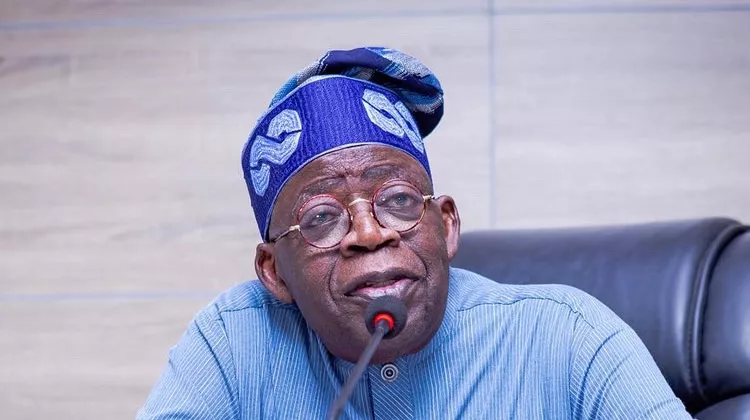Nigeria’s Organised Private Sector (OPS), have expressed their expectation to the new government of President Bola Tinubu in providing a conducive environment for sustainable entrepreneurship for the growth and success of the sector.
President Bola Tinubu, had at his inauguration day, said, “On the economy, we target a higher GDP growth and to significantly reduce unemployment. We intend to accomplish this by taking the following steps: Budgetary reform stimulating the economy without engendering inflation will be instituted.
“Industrial policy will utilise the full range of fiscal measures to promote domestic manufacturing and lessen import dependency. Electricity will become more accessible and affordable to businesses and homes alike. Power generation should nearly double and transmission and distribution networks improved. We will encourage states to develop local sources as well.”
He stated that “for our investors, local and foreign: our government shall review all their complaints about multiple taxation and various anti-investment inhibitions. We shall ensure that investors and foreign businesses repatriate their hard-earned dividends and profits home.”
Expressing their expectation from the new government, director-general of Lagos Chamber of Commerce and Industry (LCCI), Dr Chinyere Almona, hopes the new administration will focus on issues of immediate and critical importance to the business environment and the overall economy.
According to her, the present tenuous and fragile business environment has been a result of inappropriate and poorly implemented policies and interventions. There are fiscal policy gaps, unsuitable monetary policies, and administrative inefficiencies which are inimical to the proper functioning of the economy. These should be reviewed and urgently reversed for immediate gains.
Almona stated that, “areas of grave concern include arbitrage-urging non-unified exchange rates, incidences of market shocks, massive infrastructural deficits, and unsustainable debt burden.
“Another issue is the recently approved fiscal policy measures which are at variance with the pre-existing but fully agreed-on FPM roadmap 2022 – 2024. The recent measures run parallel to real sector growth and should be suspended forthwith with a view to being reviewed after due consultations with stakeholders.”
She pointed out that the government should sustain interventions in select sectors like agriculture, manufacturing, and export to boost the nation’s foreign exchange earnings capacity. She also urged the government to keep track of the plans to tackle the menace of oil theft and to boost oil exports.
“The LCCI encourages the new government to tackle the issue of subsidy removal with alacrity and with its economic consciousness. The decision, however, must be combined with humaneness for the sake of the most vulnerable. Security is an issue that must also be dealt with in order to ensure a conducive investment climate.
“Generally, the government should support sectors with diminishing contributions to GDP as well as those whose value chains are domesticated. Some of the policies implemented by the outgoing regime might have been well-intentioned, however, implementation was a challenge,” she said.
The president of Manufacturers Association of Nigeria (MAN), Otunba Francis Meshioye, advised the new president to, as a matter of urgency, reverse with immediate effect, the 2023 fiscal policy measure that raises taxes on beverages and tobacco while also address the issue of multiple taxes in the country.
Meshioye stated the need to give the productive sector maximum priority for the general good of all in terms of wealth and job creation for the nation.
He also harped on the need to promote the use of local content by mandating the patronage of Made-in-Nigeria products by all government parastatals, agencies, and ministries; revisit executive orders 003 and 004; creates a special window for forex allocation to the manufacturing sector; identify and break the power broker militating against the completion of the Ajaokuta steel complex to make available raw materials for our steel and automobile industries and provide incentives to encourage a rapid energy transition in the manufacturing industry.
Speaking further, he urged the new administration to give tariff preferential treatment to the motor vehicle and assembly sector pending the development of the iron and steel sector; revisit and reactivate dormant export incentives and engage and dialogue with the key stakeholders in the manufacturing sector on overcoming the challenges troubling the sector.
He added that the magnitude of the responsibility awaiting the new administration is enormous, demanding high senses of determination, and resourcefulness, as almost all parts of the sectors are presently in shambles, squarely squabbling in crisis.
The national president, Nigerian Association of Chambers of Commerce, Industry, Mines and Agriculture (NACCIMA), John Udeagbala, said the Nigerian economy is primarily powered by the Small and Medium Enterprises, SMEs as over 85 per cent of the country’s industrial sector is reliant on the SMEs which embodies the informal sector also.
NACCIMA encouraged the new government to pay attention to these issues, amongst others, and cooperate with all public and private sector partners to enunciate policies that will foster a private sector-driven economy in Nigeria.
“While we believe that this new administration will do great exploits, exceeding the works of their successors, I would also like to use this opportunity to charge you all to work closely with NACCIMA, as the synergy will be needed to further promote business interests in Nigeria and the global economy at large,” he stressed.





